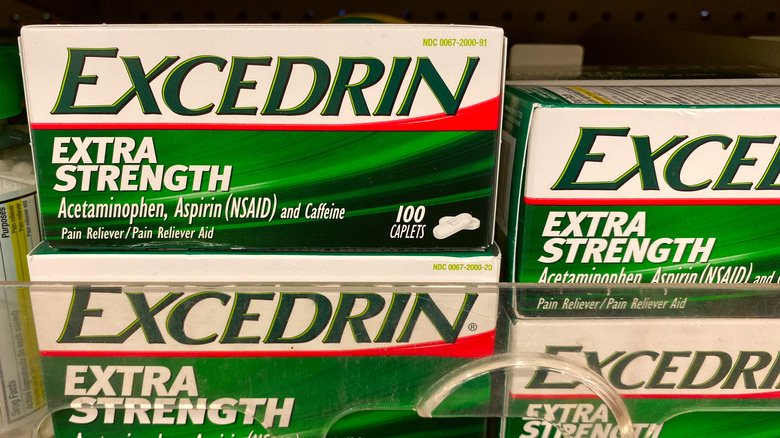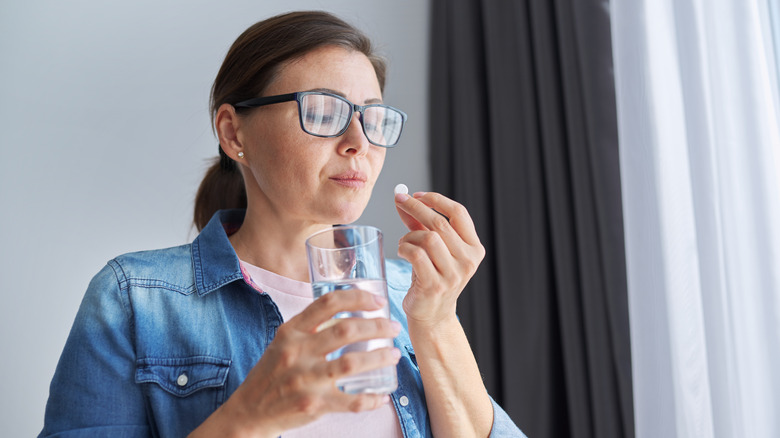What Really Happens To Your Body When You Take Excedrin
Excedrin is an over-the-counter medication used to treat headaches and migraines. While many OTC remedies for headaches rely exclusively on either acetaminophen or nonsteroidal anti-inflammatories (NSAIDs), Excedrin Migraine (which has the same main ingredients as Excedrin) combines the two and adds caffeine to their ingredient list (via Healthline). Specifically, Excedrin's main ingredients are acetaminophen, aspirin (an NSAID), and caffeine.
Acetaminophen relieves pain and reduces fevers. Scientists are unsure exactly how it works, but they do know that it works in the brain and spinal cord areas of the central nervous system. Taking acetaminophen temporarily reduces the amount of prostaglandins, a group of lipid compounds that are linked with pain, produced in the body. This allows your body to tolerate a higher degree of pain.
Aspirin is an NSAID and works by reducing pain and inflammation in the body. NSAIDs are often recommended after bug bites, sports injuries, or other ailments that cause swelling or irritation. Like acetaminophen, aspirin reduces the amount of prostaglandins in the body, but it does it in a slightly different way.
Caffeine helps to improve the effects of acetaminophen and NSAIDs
You may be wondering why caffeine is one of the main ingredients in Excedrin. It isn't a pain reliever, after all. True, caffeine does not reduce pain or inflammation, but it can help bolster the effects of the other drugs in Excedrin. According to Verywell Health, combining caffeine with those drugs is "more effective in treating migraines and tension-type headaches, as compared to the analgesic medication alone." Caffeine helps to increase the absorption of acetaminophen and NSAIDs, which allows you to enjoy the benefits more directly.
According to Healthline, caffeine is also a vasoconstrictor, which means it constricts blood vessels. Headaches are caused by blood vessels widening in the brain, so caffeine can combat those effects. Finally, caffeine is a stimulant, which means it can help you feel more energized and less sluggish. This is a nice bonus after the feeling of fatigue that often comes with a headache or migraine.
Even though over-the-counter medications are generally safe, not every option will be best for you and your unique health condition. It's always a good idea to talk with your doctor about the best OTC medication to take when you have a headache or migraine.

